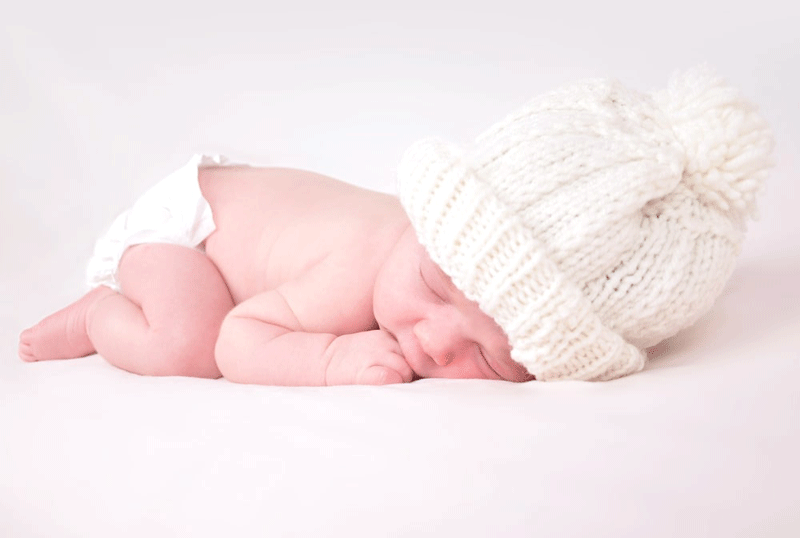As fresh parents, you'll quickly realize that your newborn seems to exhaust a surprising amount of diapers. So naturally, you may ask: what is the average diaper usage for a newborn? This guide aims to break down the topic of newborn diaper consumption, offering you a thorough knowledge of why your newborn needs so many diapers and strategies to handle it.
Grasping the Essentials: The Reason Behind Numerous Diapers?

We commence with the fundamentals. Newborns possess small bladders, and their nourishment is primarily liquid via breastfeeding or formula."
These factors contribute to a high frequency of diaper changes. A newborn goes through about 8-12 diapers daily, up to 84 diapers a week! This increased consumption is normal and is an important part of keeping your baby comfortable and preventing diaper rashes.
Factors Affecting Newborn Diaper Usage

Several factors affect how many diapers a newborn uses per day. These include the baby's age, feeding schedule, and overall health.
Younger newborns tend to have more frequent bowel movements, so that they may require more diaper changes. In contrast, older newborns might use fewer diapers as their bowel movements become less frequent.
The feeding schedule also plays a role. For example, breastfed babies tend to pass stool more often than formula-fed babies because breast milk is easier to digest.
Finally, a newborn's overall health can affect diaper usage. For example, certain medical conditions might cause a baby to pee or poop more frequently, requiring more diaper changes.
Always consult your pediatrician if you notice abnormalities in your baby's diaper habits.
How to Determine if Your Newborn is Using the Right Number of Diapers

Keeping track of your newborn's diaper changes can give you valuable insight into their health. As mentioned, the average range is around 8-12 diapers daily. However, this is just a guideline.
What's more important than the number of diapers is what's inside them. Newborns should have several wet diapers and at least three daily bowel movements in the first month.
A significant decrease or increase in diaper usage might indicate an underlying issue. It's always best to consult your healthcare provider for more clarification.
The Impact of Feeding on Diaper Changes

The type of feeding can significantly impact how often a newborn needs a diaper change. For example, as stated earlier, breastfed babies tend to have more frequent bowel movements because breast milk is easier to digest. This results in more soiled diapers. On the other hand, formula-fed babies might have fewer bowel movements, but their urine output might be higher due to the higher fluid content in formula milk.
Common Misconceptions About Newborn Diaper Usage
- Some misconceptions about newborn diaper usage can cause unnecessary worry. For example, some parents believe that if an infant uses more than the 'average' number of diapers, they might have diarrhea or other health problems. However, a wide range of normal exists, and frequent stooling is common, especially in breastfed babies.
- Another misconception is that using fewer diapers means your baby needs to get more to eat. While fewer wet diapers could indicate a feeding issue, it's not the only sign to look out for. Always consult a healthcare provider if you're concerned about your newborn's feeding or diaper output.
Tips for Managing High Diaper Usage in Newborns
Managing the high diaper usage in newborns can seem daunting, but with some strategies, it becomes manageable. Here are a few tips:
Bulk Buy:
Buying diapers in bulk can help you save money and ensure you always have a supply.
Size Right:
Ensure your baby's diapers are the right size. A good fit can prevent leaks and reduce the need for additional changes.
Change Wisely:
While keeping your baby dry and comfortable is important, not every wet diaper needs an immediate change, especially if it's just urine.
Consider Cloth Diapers:

If the cost of disposable diapers is a concern, consider using cloth diapers. They are eco-friendly and can be more cost-effective in the long run.
Conclusion: Embracing the Reality of Newborn Diaper Needs
Becoming a parent is a joyous but challenging journey. Understanding the reality of newborn diaper usage is essential to this journey. While the high number of diapers might be surprising initially, it's a normal part of your baby's early life.
Remember, each baby is unique and may not fit perfectly into the average. What's most important is to keep track of what's normal for your baby and consult with a healthcare provider if you notice any significant changes.
Frequently Asked Questions
How many diapers does a newborn use per day?
On average, a newborn uses between 8 to 12 diapers per day. However, this can vary depending on the feeding method and overall health.
Does breastfeeding or formula feeding affect diaper usage?
Yes, the type of feeding can impact diaper usage. For example, breastfed babies often have more bowel movements, leading to more diaper changes.
How can I save on diaper costs for my newborn?
Buying in bulk, using the right size to avoid leaks, and considering cloth diapers are a few strategies that can help reduce diaper costs.
What if my baby is using fewer diapers than average?
While the average is 8-12 diapers daily, some babies might use fewer. If your baby is producing fewer wet diapers or bowel movements than expected, consult a healthcare provider to ensure no underlying issues.
Is frequent diaper changing necessary?
Keeping your newborn dry and comfortable is essential to prevent diaper rash. However, only some wet diapers require an immediate change, especially if it only contains urine. So keep a close eye on your baby's comfort and skin condition.

